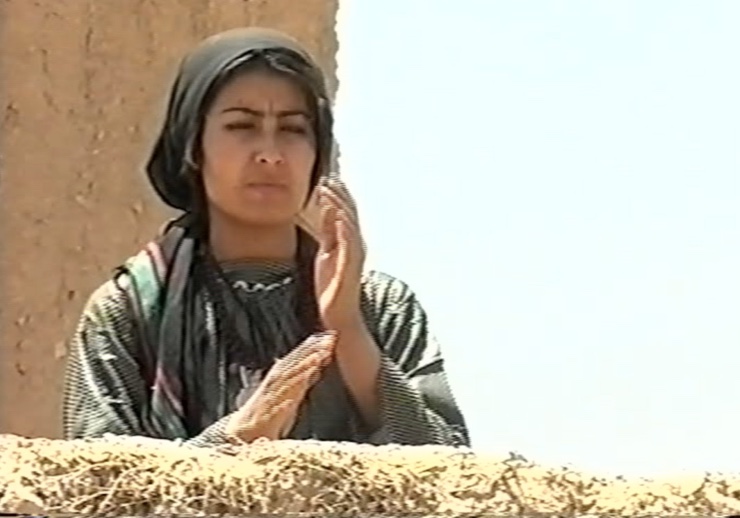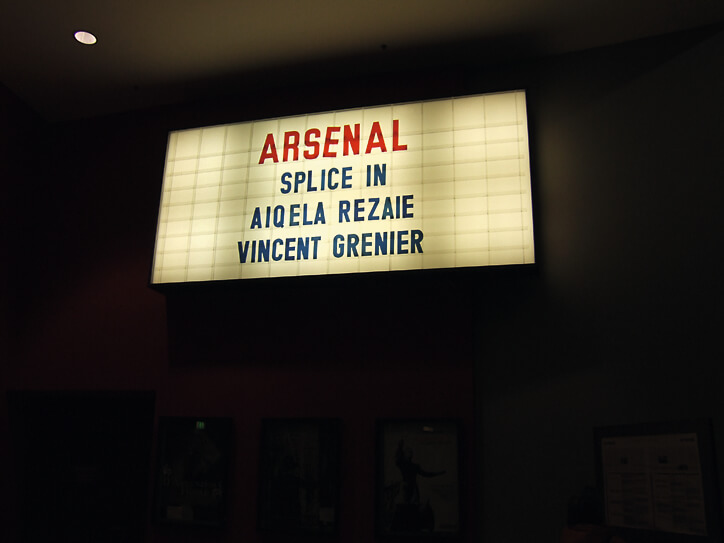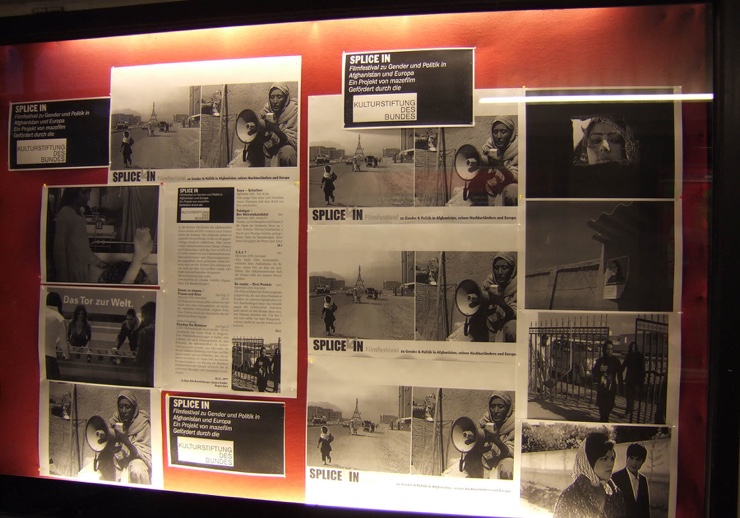SPLICE IN
Film Festival on Gender and Politics in Afghanistan, the Neighbouring Countries and Europe
The SPLICE IN festival juxtaposed the theme of “women and Afghanistan” – a topic that has been repeatedly instrumentalised – with projects by local female filmmakers, actresses, and women’s organisations whose political work partially goes back to pre-Taliban times and has been pursued in exile. These perspectives were brought together with works by filmmakers returning from exile, like Maliha Zulfacar’s Kabul Transit, or those of a second generation that grew up outside of Afghanistan, like filmmaker Wazmah Osman’s Postcards from Tora Bora (made in collaboration with Kelly Dolak). Mazefilm contributed a perspective from the outside, collaborating with filmmakers, actresses, and activists in Kabul for our film Passing the Rainbow. Furthermore, links were drawn to Afghanistan’s neighbouring states of Iran and India. Nari Adalat (Women's Courts) by Indian filmmaker and feminist Deepa Dhanraj, for example, documents an alternative legal form that emerged from an independent initiative and intervenes in the existing hierarchies of judicial structures. Khaneh siah ast (The House is Black), an outstanding 1962 film by Iranian poet Forough Farrokhzad, was also shown.
In addition to current documentary film productions, full-length feature films and short educational films, historical films from the archive of Afghan Film were screened for the first time in Germany. This included the feature Talabgar ("The Marriage Candidate") by Khaleq Alil or the short feature Saya ("Shadows") shot in 1990 by the director Nacir Alqas, who lives in Kassel, Germany. The current production conditions in the field of film and television - particularly for women - were discussed in a panel with film makers and film producers from Afghanistan. Women are subject to the social pressure of traditional family structures and fundamentalist animosities to a greater extent than their male colleagues. Moreover, in the present phase of reconstruction, Western relief organizations have become a decisive factor in Afghan film production. This raised the question of whether and how these organizations influence the contents of film scripts and which values they seek to assert.
In each city, we worked with different participants. In Kassel, we collaborated with the Kasseler Dokfest and with art mediator and social worker Ayse Gülec from Kulturzentrum Schlachthof, where, among other things, a project presentation with filmmaker Deepa Dhanraj and lawyer Kabeh Rastin-Tehrani took place. Nacir Alqas also discussed his film Saya (Shadow). In Berlin, we worked with Arsenal – Institute for Film and Video Art and showed, for example, the work of Berlin-based filmmaker Mira Habibi: a film about protagonists from Iran’s feminist and left-wing scene who had to flee to West Berlin in the early 1980s. And in Hamburg, where the film programme took place at Metropolis Kino, journalist Christiane Müller-Lobeck spoke with participants from the film project Ungeduldig (Impatient), which was created within the framework of the media education initiative mokala/basis & woge eV.



